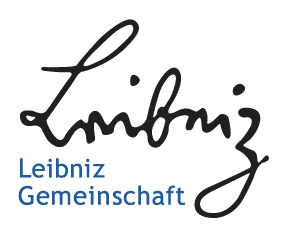Three questions put to Dr. Alexander Pöche
As Head of Licence Management, Dr. Alexander Pöche has been responsible for licences at TIB since 2014. In this interview, he explains what exactly his tasks are, and the important role that licences play for libraries.
Licences play a particularly important role for libraries. After all, besides being home to thousands of books on their shelves, libraries also have an increasing number of databases, electronic journals and electronic books in their collections. Could you tell us what these media have to do with the topic of licences?
When you purchase a printed book or journal, there are clear rules about what a library can do with these items. This is not the case with electronic media, for which libraries acquire rights of use. These rights must be defined and set out in a licence, i.e. an agreement between the rights holder – usually a publisher – and the library.
And what exactly are your and your colleagues’ tasks in this area, as well as those of TIB in general?

Our task is to reach licensing agreements with commercial and society publishers. This involves obtaining offers, assessing costs in relation to the rights of use granted, checking contract drafts and, of course, continuously negotiating improvements. Given that we are not only a university library, but also a national specialised library, we have very specific needs regarding rights of use. Together with the sheer volume of content from multiple providers across the world, this is what makes licensing agreements so complex.
Of course, Licence Management is not the only unit involved in this process. We work in close cooperation with various teams from the Acquisitions and Cataloguing Department.
Looking back, how has the importance of licences changed in day-to-day operations at the library? And, of even greater interest: How will their importance change in the years to come, and what impact will these developments have on the mission of TIB?
Print is considered outdated, at least in the disciplines served by TIB. Nowadays, many providers offer electronic products only; customers want digital content, and TIB also has an e-preferred strategy. We have long moved on from the days when a digital version was issued as an add-on to a print copy. The acquisition process has become considerably more complicated, and greater demands are placed on staff. The delivery of content also increases in complexity. To ensure that all library users know what they are allowed to do with a particular electronic book or electronic version of a journal, the licence information, i.e. the rights of use, must be documented and communicated. To draw another comparison with print items: If you buy 100 printed books, you can use all of them in the same way. But when you buy 100 electronic books and you are out of luck, you might end up with 100 different licence agreements with varying rights of use.
It is extremely exciting to look to the future. The transformation to Open Access has clearly gained momentum. The number of freely available journals, conference proceedings and books will steadily increase. As a result, the need for licences from publishers will decline again, but will likely not disappear altogether. Products that are not affected by the transformation to Open Access will continue to exist, especially certain types of databases; these types of products will still need to be licensed. And even if the number of licence negotiations drops at some point, as long as commercial providers exist, there will be a need to negotiate with them – probably less frequently about licences, but instead about services in the publication process and how these are financed.
The transformation to Open Access, or rather the desired result of the process, does of course not only affect the area of licensing, but the entirety of TIB. The free availability of specialist information creates completely new needs among researchers, and TIB must respond to these needs with a stronger focus on services.
Consortia and licences
As the German National Library of Science and Technology, as well as architecture, chemistry, computer science, mathematics and physics, TIB negotiates licences with publishers and other information providers, enhancing access to scientific publications throughout Germany under a wide range of licensing models. The formation of consortia is an important element in the provision of electronic specialist information: as part of its mandate to ensure the supraregional supply of literature, TIB organises consortia, making it easier for higher education institutions, research facilities and scientific libraries in Germany to gain access to various products.
In 2021, TIB successfully led negotiations for 42 consortia for the licensing year 2022, with an accumulated customer participation rate of 1,152, spread across 290 institutions.

